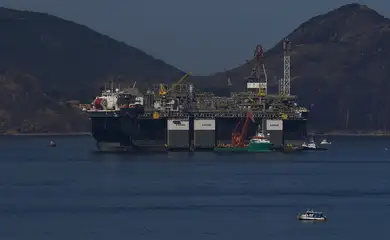Investments in Petrobras business plan estimated at $75.7 bi

Petrobras estimates investments to total $75.7 billion in the next five years starting in 2020. The company's new business plan was approved Wednesday (Nov. 27) by its administrative board. Roughly 85 percent of the investment should go towards exploration and production.

“The decision is in line with our strategic stance and its focus on exploration and production assets, especially for pre-salt oil, where Petrobras holds a competitive handicap and brings in yield for investments,” a note issued by the state-run giant reads.
The bulk of investments foreseen is below that of the previous plan, $84.1 billion for 2019–2023.
The divestment laid forth in the plan varies from $20 billion to $30 billion for 2020–2024, “mostly concentrated in 2020 and 2021.”
Production
For oil and natural gas, Petrobras foresees a production of 3.5 million barrels of oil equivalent a day in 2024, against 2020’s 2.7 million. For oil production alone, the volume should rise from 2.2 million barrels of oil equivalent a day in 2020 to 2.9 million in 2024. “For the production target of 2020 we have considered a 2.5 percent variation up or down,” the firm reported.
Petrobras said the new plan follows the posture revealed on September 26, which includes “being the best company in the generation of value for shareholders, with a focus on oil and gas with security, respect for both people and the environment.”
“The Strategic Plan includes a transformative agenda that aims to grip the performance gap separating us from the world’s best oil and natural gas companies, creating substantial value for our shareholders. Furthermore, the plan is consistent with our five strategic pillars: maximizing yield on the capital used; slashing capital costs; the relentless search for lower costs; meritocracy; respect for people, the environment, and security,” the note says.



